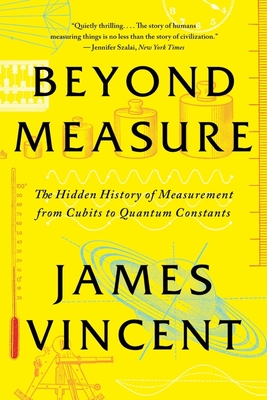
American Eclipse: A Nation's Epic Race to Catch the Shadow of the Moon and Win the Glory of the World
Description
Longlisted for the PEN/E.O. Wilson Prize for Literary Science Writing
Winner of the AIP Science Communication Award
An Amazon Best Book of the Year (Science)
A St. Louis Post-Dispatch Best Book of the Year
Finalist for the Colorado Book Award (Nonfiction)
Booklist Editors’ Choice (Science & Technology)
Featuring a new afterword priming readers for the total solar eclipse of 2024, this “essential” (BBC) account brilliantly captures the celestial and human drama of eclipses.
With this “suspenseful narrative history” (Maureen Corrigan, NPR’s Fresh Air), award-winning science writer David Baron tells the story of the enterprising scientists—among them, planet hunter James Craig Watson, pioneering astronomer Maria Mitchell, and ambitious young inventor Thomas Edison—who raced to Wyoming and Colorado in the summer of 1878, at the dawn of the Gilded Age, to observe the first great American eclipse. Thrillingly recreating the fierce jockeying of these nineteenth-century astronomers, Baron draws on years of “exhaustive research to reconstruct a remarkable chapter of U.S. history” (Lee Billings, Scientific American), when the fate of American science still hung precariously in the balance. Now updated with an afterword that unites eclipses and eclipse-chasers past and present—revisiting the total solar eclipse of 2017 and looking forward to that of 2024—American Eclipse reveals the enduring power of these ethereal events to bring people together across space and time.
Praise for American Eclipse: A Nation's Epic Race to Catch the Shadow of the Moon and Win the Glory of the World
Baron, an award-winning journalist, uses exhaustive research to reconstruct a remarkable chapter of U.S. history. He tells the surprising story of how the eclipse spurred three icons of the 19th century—inventor Thomas Edison, planet hunter James Craig Watson, and astronomer and women's-rights crusader Maria Mitchell—to trek into the wild Western frontier to observe it.
— Lee Billings - Scientific American
The stories of these three enterprising scientists reflect the ambition and intellectual curiosity of the United States in the late-nineteenth-century, when the country was trying to cement its place in the international scientific community.
— Concepción de León - New York Times Book Review
Baron mingles the excitement, aspiration and drama of these events with a good dose of technical information and scientific history. Archival photos, sketches and prints are scattered throughout the pages. This is a wonderful, dramatic piece of scientific history, and a fine companion for eclipses to come.
— Sara Catterall - Shelf Awareness
Science journalist Baron shares a timely tale of science and suspense in this story of rival Gilded Age astronomers contending with everything from cloudy skies to train robbers to overserve the historic total solar eclipse of July 29, 1878. . . . Baron skillfully builds tension, giving readers a vivid sense of the excitement, hard work, and high stakes in play. With the first total solar eclipse to cross the U.S. in 99 years set to occur in late August 2017, this engrossing story makes an entertaining and informative teaser.
— Publishers Weekly, starred review
David Baron contracted an incurable case of umbraphilia twenty years ago in Aruba. Fortunately for readers, Baron’s fever stokes his account of the first great American eclipse, in 1878, while priming us for the next one—and the next, and the next.
— Dava Sobel, author of The Glass Universe
David Baron beautifully captures the awe, the magic, and the mystery of one particular eclipse, an event in 1878 that spurred on America to embrace the sciences. A superb contribution to the history of astronomy.
— Marcia Bartusiak, author of Einstein's Unfinished Symphony
This fascinating portrait of the Gilded Age is suffused with the peculiar magic and sense of awe that have always attended eclipses, those fraught few minutes when day becomes night, time stands still—and anything seems possible.
— Hampton Sides, New York Times best-selling author of Blood and Thunder
A suspenseful and dramatic account of the rival scientific expeditions that came to the American West to view and study this rare phenomenon…Baron enables us to understand what drew them to the eclipse and what this episode tells us about the changing role of science in American culture.
— Paul Israel, author of Edison: A Life of Invention
A wonderful book, bringing lessons from the past to the present. In exceptionally clear and interesting prose, Baron brings nineteenth-century personalities to life, showing how men and, unusually, a female astronomy professor of that time observed the total solar eclipse of 1878.
— Jay Pasachoff, Field Memorial Professor of Astronomy at Williams College
Lucidly melds science, ambition, policy, technology, the interplay of personality and practice, and the immediacy of experience. The book is marked by wonderful, eye-opening surprises, notably Edison’s enthusiasm for and participation in the observation of the eclipse and the independent expedition of Maria Mitchell and her crew in the face of their exclusion from the effort.
— Daniel Kevles, author of The Physicists
Brilliantly researched and beautifully crafted, American Eclipse conveys historical discoveries and scientific obsessions with the verve and excitement of a work of fiction. David Baron's vivid prose captures the wonder of an era in which modern astronomy was just beginning to reveal our connection to vast universe beyond our own small world.
— John Pipkin, author of The Blind Astronomer's Daughter




























